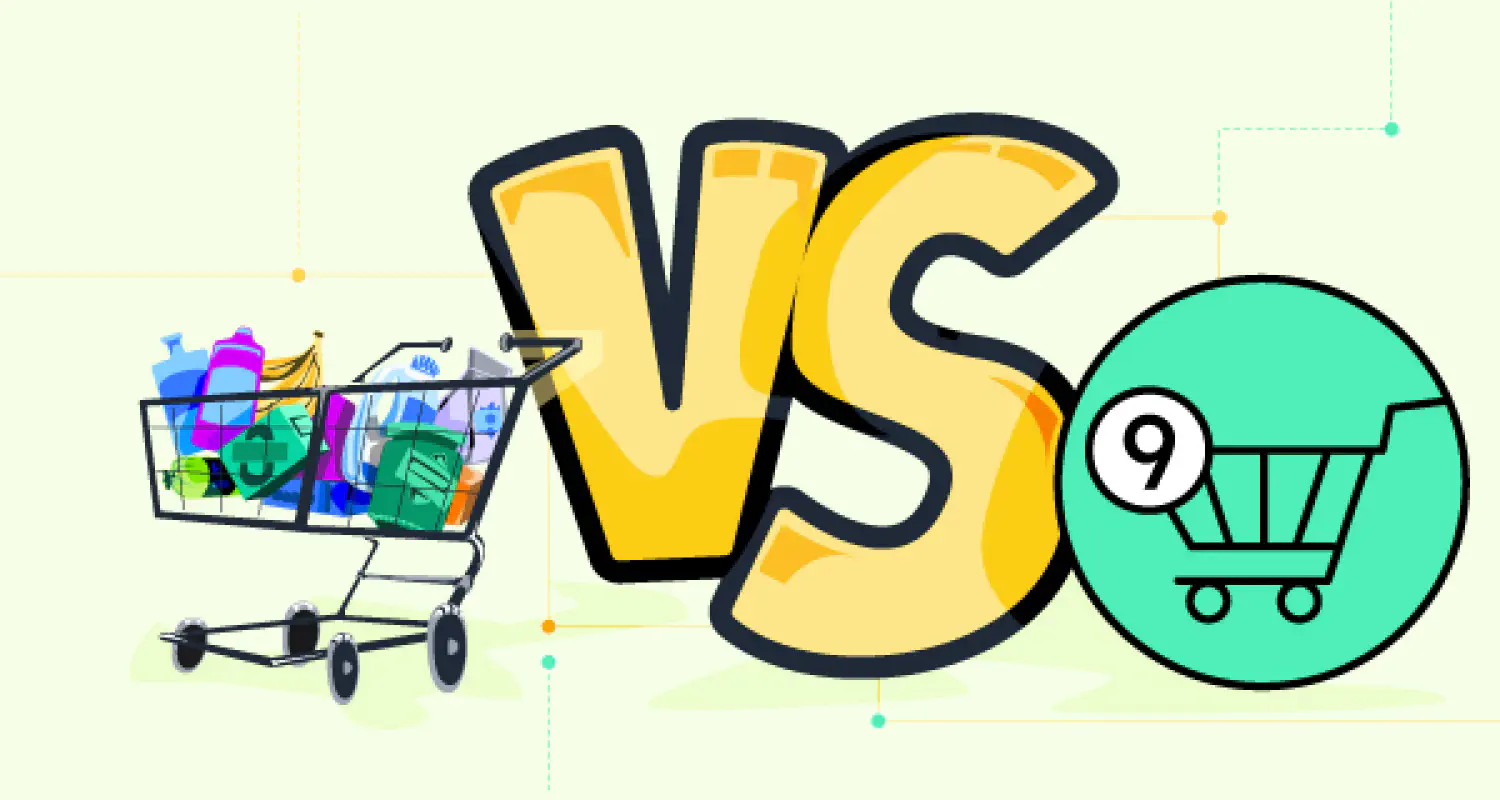6 Types of B2B Sales Tools & Software to Run Your Sales Process

What’s an hour worth to your sales team?
Depending on the type of tool you use within your team, an hour could be spent on a cold call that leads to a trial, on a product demo that persuades a doubtful lead to become a customer, or it might even be spent writing a series of follow-up emails that attract 10 new prospects. Without these sales tools, it might be spent on just data entry.
Efficient use of time helps your team close more sales deals, yet most sales professionals spend only a third of their time actively selling. The best teams know that using the right tools keeps them organized &allows them to focus on profitable activities while providing you with the necessary sales metrics to back them up.
Gone are the days of only utilizing cold-calling and rolodexes. Succeeding in sales in the 21st century is not easy. In this article, we’ll introduce you to 6 types of sales tools that can be used for each stage in the b2b sales funnel. These can help your team close more deals, work more efficiently & outperform competitors.
What are Sales Tools?
Sales tools are software products designed to assist in the selling process, making it more effective, efficient & manageable. These tools can help your sales team identify & track potential leads, automate parts of the sales process, provide valuable analytics & improve customer relationships.
Sales tools work by integrating with existing sales workflows, bringing together disparate pieces of data. They also help in automating repetitive tasks and providing insights that assist in strategic decision-making. With the right sales right sales software,
sales teams can increase their productivity, run a more efficient sales funnel & ultimately close deals faster.
Importance of Sales Tools in B2B Sales
According to LinkedIn state of sales, 94% of sales professionals say sales tools help them close more deals, highlighting the importance of sales software tools for B2B companies.
Sales tools assist sales teams in qualifying prospects who are most likely to benefit from their products and services. They also help in determining the optimal time to reach out, and understanding what to discuss with them. Sales tools also save time on tedious tasks, allowing the team to focus on their core responsibility which is closing more deals. These tools are the X factor that can make the difference between good sales teams and great ones.
Want us to analyze your use case & recommend a sales tool that works best for your needs?
1. Sales Management Tools
Sales management software are tools that provides sales managers with detailed overviews of the sales pipeline and processes. It simplifies team activities, monitors individual sales team member performance & the status of deals. These types of sales tools help sales teams connect the tools they use daily, such as messaging apps & CRMs.
A sales management tool allows sales managers to quickly access the information needed for improved decision-making and fine-tuning any aspect of their team’s sales workflow. This results in enhanced sales performance and pipeline management. It’s almost like a second brain for the sales managers and team leaders, a type of tool that acts like a map used to navigate.
Simply put, these tools are the operating system for modern, efficient & high performing sales teams. That’s because they work oncombining key aspects of the sales process such as sales CRM software, email automation, lead management & reporting in one place. In doing so, the tool ensures that everyone in the team - from individual sales agents to the sales manager - has the tools needed to do their best work.
2. Sales Prospecting Tools
Sales prospecting is the first step of the lead generation process. It’s basically the art of finding leads that most resemble your target buyer & eliminating low quality leads from the start. A good salesman knows his prospect very well & wastes no time pursuing wrong personas That’s why it’s a crucial part of the pre-sales process & can make or break your sale.
To succeed in the prospecting process you need a solid strategy to follow and the right toolkit to assess target accounts or ideal prospects to reach out to. This is where sales prospecting tools come in handy.
A sales prospecting tool is a software platform that helps your sales team automate or simplify tasks associated with lead qualification. Your sales agents could prospect by manually finding and organizing emails and scheduling meetings, but such a process would be tedious and time-consuming. Lead prospecting tools let you increase the volume of leads you convert into prospects while saving your sales agents time and sanity.
Sales prospecting tools cover 5 key tasks:
- Finding leads & their contact information
- Researching & qualifying prospects
- Crafting personalized messages
- Scheduling meetings with prospects
- Analyzing customer engagement
While it’s possible to conduct sales prospecting manually, using sales prospecting tools provides unique advantages. HubSpot’s Sales Strategy Survey found that 18% of salespeople cite a lack of high-quality leads as their top challenge. This is where sales prospecting tools step in - eliminating the never ending struggle of low-quality & unqualified leads.
Sales prospecting software solves this problem by helping sales agents find, qualify & prioritize leads, all while providing them with accurate contact data to simplify their outreach.
3. CRM Software
A CRM or Customer Relationship Management software is a system that helps business owners track all communications and nurture relationships with their leads and clients effectively.
All the best customer relationship management (CRM) systems store customer profile information, automate time-consuming sales tasks. They also help sales managers identify lucrative sales opportunities that improve sales performance. If a sales team wants to be efficient and to succeed in sales in the 21st century, then a solid & reliable CRM system is a must-have.
But it doesnt stop here. Smart sales teams also integrate their CRMs with other tools they use on a day to day basis. Picture this — your sales team is running their sales process on WhatsApp. It’s their messaging app of choice where they outreach to prospects, qualify leads & close deals. It’s crucial to have your CRM connected to WhatsApp in order to sync customer data and simplify the process.
A WhatsApp-CRM Integration allows sales reps to message prospects and gather customer data - all from one interface. No need to multitask across multiple software applications in order to do the same thing. Also this integration between CRM & WhatsApp gives you the ability to build AI chatbots that can automatically qualify leads for you on autopilot.
In order for sales teams to do that, they first need to choose a CRM that has an integration with WhatsApp. The list of CRMs that works best with WhatsApp is long, choose the one CRM that works best for your team’s specific needs and wants.
4. Sales Reporting & Analytics Tools
Sales reporting & analytics isn’t an option; it’s a must for every organization, big or small. It unlocks insights into your sales performance, customer behavior & overall business health. With the right tools and strategies, data you derive from these tools can help you make better decisions and drive business growth.
Sales reporting & analytics affect key areas in the business, including:
- Sales Performance: By analyzing your past transactions and customer behaviors, you can improve your sales strategy to drive more conversions.
- Revenue: More conversions = increased revenue.
- Customer Experience: Your Sales’ analytics allow you to understand your customers better and create sales processes tailored to their behaviors and needs.
- Planning: With historical data, you can create more accurate sales forecasts and predict future trends. You’ll make better decisions about inventory management, resource allocation & overall business planning.
Sales reporting & analytics tools are crucial for B2B sales leaders. They help managers identify gaps in their sales funnel, assess team performance and add value were needed - which enhances the overall efficiency of the sales process.
5. Sales Productivity Tools
Generally speaking, sales productivity software is built to help you manage your sales in the most efficient way possible given the resources you have. There are countless advantages to making use of such tools, however, here are some tangible things a sales productivity tool can help you achieve:
- Save your sales valuable team time through task automation
- Optimize the selling process & overall sales funnel.
- Improve communication — both internally within your team or client-facing.
- Help you integrate your sales department with other supporting departments - marketing or product - for alignment.
There are dozens of sales productivity tools out there, however, it’s important to assess your business needs and identify areas of improvement in order to pick the right tool that will help your team’s efficiency.
6. Sales Enablement Tools
Sales enablement tools empower sales teams with the right assets & content throughout the entire sales lifecycle. These tools combine business intelligence, content analytics, customer experience, CRM workflows, sales automation & other smaller processes to enable sales agents to close a sales deal.
A sales enablement tool provides a dashboard & portal for an organization to upload, organize & curate all sales-related content. This improves visibility and provides easier access for sales teams to use the content that organizations are creating. Sales enablement tools utilize properties that tag each piece of content with its target buyer persona, its use case, where it falls in the sales funnel & additional properties that can be customized.
Sales enablement tools help sales teams find and use the best content created by product & marketing teams, and following that, they provide analytics on what prospects view & what content is the most engaging.
Conclusion
These types of tools help elevate the workflow of sales teams selling B2B software and allow sales managers to make better, more data-driven decisions. While it’s obvious why each tool is useful, it’s important to assess business needs in order not to overhwhelm them and only implement the tools that will help your team do their job better. With that in mind, there’s no denying that the right sales tools can take your sales process from good to great, which is the ultimate goal all sales managers dream of.
Frequently Asked Questions
Sales tools are software products designed to assist in the selling process, making it more effective, efficient, and manageable. These tools can help your sales team identify and track potential leads, automate parts of the sales process, provide valuable analytics, and foster improved customer relationship management.
They work by integrating with existing sales workflows, bringing together disparate pieces of data, automating repetitive tasks, and providing insights that assist in strategic decision-making. With the right sales tools, a sales team can increase its productivity, close deals faster, and ultimately drive more revenue for the business.
Sales tools are popping up all over the industry for nearly any part of your sales process, ranging from sales management to customer relationships and sales analytics. These handy tools and software offer numerous benefits to help your company grow and succeed.
Since sales tools are so versatile, it’s helpful to break them down into specific categories. Check out these 6 types of sales resources and examples of each:
- Sales management tools
- Sales prospecting tools
- CRM tools
- Sales analytics tools
- Sales productivity tools
- Sales enablement tools
These are the 7 essential steps in the sales process that successful salespeople master:
- Prospecting: Identifying and qualifying potential customers.
- Establishing rapport: Building trust and connection with the prospect.
- Identifying needs: Understanding the prospect’s specific challenges and goals.
- Presenting solutions: Demonstrating how your product or service addresses their needs.
- Answering objections: Addressing any concerns or hesitations the prospect may have.
- Closing the sale: Securing the commitment and completing the transaction.
- Getting resales and referrals: Building long-term relationships and encouraging repeat business and recommendations.
Those would be:
- Transactional selling: This is the most basic form of sales, focusing on a quick exchange of goods or services for money.
- Solution selling: This approach focuses on identifying the customer’s specific needs and challenges and then presenting your product or service as the solution. It involves active listening, asking insightful questions, and demonstrating how your offering can solve their problems and improve their lives.
- Consultative selling: This method takes solution selling a step further by building a trusted advisor relationship with the customer. The salesperson acts as a consultant, providing expert guidance and recommendations based on a deep understanding of the customer’s business and industry.
- Provocative selling: This method challenges the customer’s existing assumptions and beliefs, highlighting hidden problems or opportunities they may not be aware of.
Choosing the right type of sales approach depends on the specific product or service, the target audience, and the sales situation.
Learn more
If you'd like to learn more about how WhatsApp can help you grow your business, please reach out to us on WhatsApp at +13024070488 (Click to chat now).
We also offer a free consultation session where we review your use case, answer any questions about WhatsApp, and help you build a strategy to make the best out of the platform. Book a call with us here. We'd love to speak with you:
Book a call: Europe, the Middle East, and Africa
Book a call: LATAM
Curious about Rasayel? Schedule a demo today.

Omar Nabil, a former programmer, discovered his passion for writing while working on websites. Combining analytical thinking with creativity, he crafts brand stories that emotionally resonate and inspire action.




